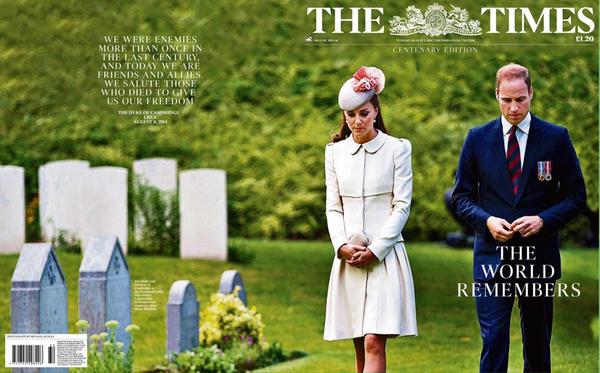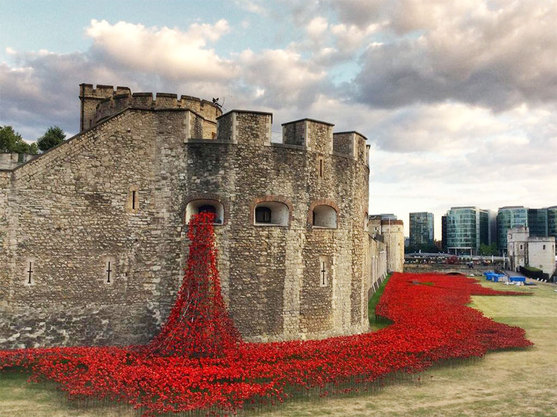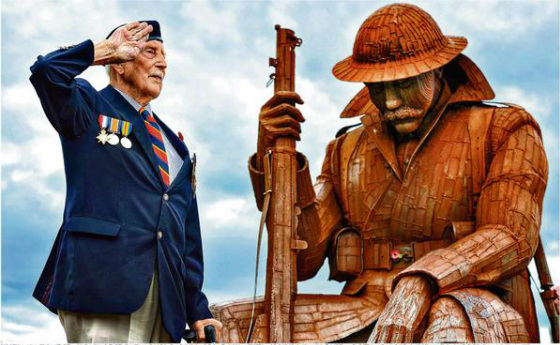Yesterday was the 100th anniversary of the start of the First World War. Today is the 30th anniversary of Richard Burton's death (the actor, not the explorer). Tomorrow is the 125th anniversary of the opening of the Savoy.
Anniversary mania is a condition that had historically been controlled by keeping the features department in quarantine. But then along came open-plan offices and dodgy air conditioning units and before you knew it, the disease had become endemic in newspaper offices and quickly spread to all areas of public life.
Every decade after every slightly significant advance had to be marked with a book, an interview, a film, a television special (backed up with another book).
The American bicentennial in 1976 was a biggie. So was the Queen's silver jubilee the following year.
You'd expect the golden and diamond celebrations to be clearer in the mind - what with being more recent - but they are much fuzzier. Mugs and sovereigns for the kids, Brian May at the top of Buck House, Brian Wilson control-freaking it over the party at the palace crowd for the gold; a sodden river pageant and its dire television coverage, Gary Barlow, the Madness Our House light show and the Duke in hospital for the diamond.
You can have too many parties and pick up too many stray balloons and damp flags to maintain enthusiasm for another shindig round the corner.
What do you remember about 2005 and the bicentenary of Nelson's victory at Trafalgar? Do you know or care what has been planned for next year to mark the 200th anniversary of Wellington's victory over Napoleon at Waterloo? Or if anything is in the pipeline for October next year to mark the 600th anniversary of our archers' success against the odds at Agincourt ? (One imagines that people were too busy worrying about the Western Front to have concerned themselves with jollities for the 500th.)
Yesterday the country was apparently united in remembrance of the boys sent to their deaths in the high summer of 1914. Boys sacrificed because the whole of Europe had taken up such intransigent positions and mobilised forces to such an extent that the Queen's grandfather and his two cousins had little choice but to wage war with each other, once Gavrilo Princip obligingly fired the starting gun.
A hundred years on, against the distant clamour of neighbour fighting neighbour and brother fighting brother in Israel, Syria and Ukraine, we heard the sirens of platitude from European leaders, a solemn celebration of peace and lessons learnt.
The Press, too, dutifully fell into line; backbenches vying to produce the starkest front page, the most evocative headline.
"The world remembers" proclaimed the Times wraparound - untruthfully, for this was essentially a European weep-in. There were pictures from London, Belfast, Balmoral, Liege, Mons - and Afghanistan, because we still have troops there.
And against what background was this sombre sentiment set? A picture of the Duke and Duchess of Cambridge, who could as well have been heading across the grass to a country church wedding as to a memorial service.
The tell-tale gravestones were safely at the back of the wrap; the far more evocative picture - Paul Kingston's photograph of a Second World War veteran saluting a statue of a First World War tommy - kept inside.
The Sun had Prince Harry looking noble above the heading "Harry's hero", and the Mail almost hit the jackpot with Kate and Harry - if only the Archbishop of Canterbury hadn't been in the foreground.
It wasn't only the royals on front-page duty: the unknown soldier was pressed into service again, with a lone candle on the tomb at Westminster Abbey, while young men dressed in early 20th century uniforms and a shower of poppies provided the Express and Star with their cover pictures.
There is, of course, no one left who served in the war, no one left who remembers the individuals who died. But we can create the illusion with photographs of old soldiers from other conflicts. Royalty with heads bowed, old men with campaign medals pinned to misshapen blazers, Chelsea pensioners, and Beefeaters among the Tower of London poppies are all brought into play.
[Paul Cummins's installation which will eventually have more than 888,000 ceramic poppies is, incidentally, the most imaginative, moving and spectacular memorial of all. SubScribe has been surprised by the limited space devoted to it in the papers so far, but Wills, Kate and Harry went to see it today, so it will no doubt figure prominently tomorrow.]
If they believed they were engaged in the war to end all wars, what would they think of the symbolism of a prince wearing medals celebrating his grandma's longevity on the throne carrying a lamp around a Belgian field while hundreds of his contemporaries adjust to life without the arms and legs blown off by roadside bombs in Iraq and Afghanistan?
What would they think if they knew that far from "learning the lessons" of the Great War, their country would go on to send nearly half a million more young men and women to die in a score of conflicts all over the world; that not a year would go by in the following century without British troops being involved in combat somewhere?
Of course we should honour the fallen. Of course we should remember and acknowledge the day that set the world on such a bloody path. But these events don't feel real, they don't seem heartfelt and instinctive. This is orchestrated homage and we are in danger of wallowing in this sea of reverence as we did in that ocean of sentimentality after the death of Diana.
That initial spontaneous show of respect by the people of (now Royal) Wootton Bassett was the real deal, but it turned into a ritual and then a tourist attraction, until the town was finally swamped.
We appear to have an unerring ability to take a pure moment and reduce it to a source of entertainment, an occasion to publish a souvenir supplement, to snipe at a politician over the wording on his wreath or to assess the fashion sense of the lesser royals.
There will be many sad centenaries over the next four years - of the Easter Rising and the Russian revolution as well as the Great War. We shall also see the 70th anniversaries of VE Day, of Hiroshima and Nagasaki, of VJ day, the 60th anniversary of Suez, the 20th anniversary of the Good Friday agreement.
Would it not be good if these could be marked with restraint and respect, rather than as an opportunity to sell a book, plug a television series or give away a free bone china thimble (plus p&p, collect the whole set for £25).





 RSS Feed
RSS Feed


